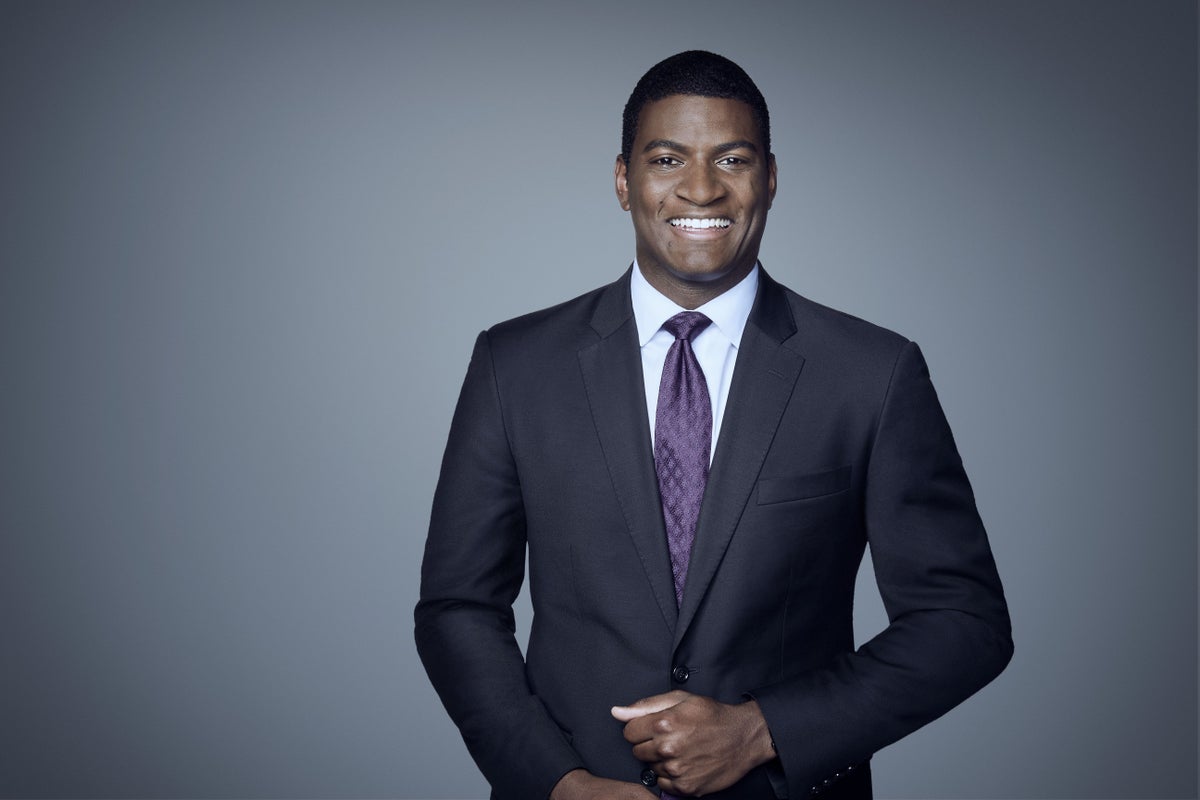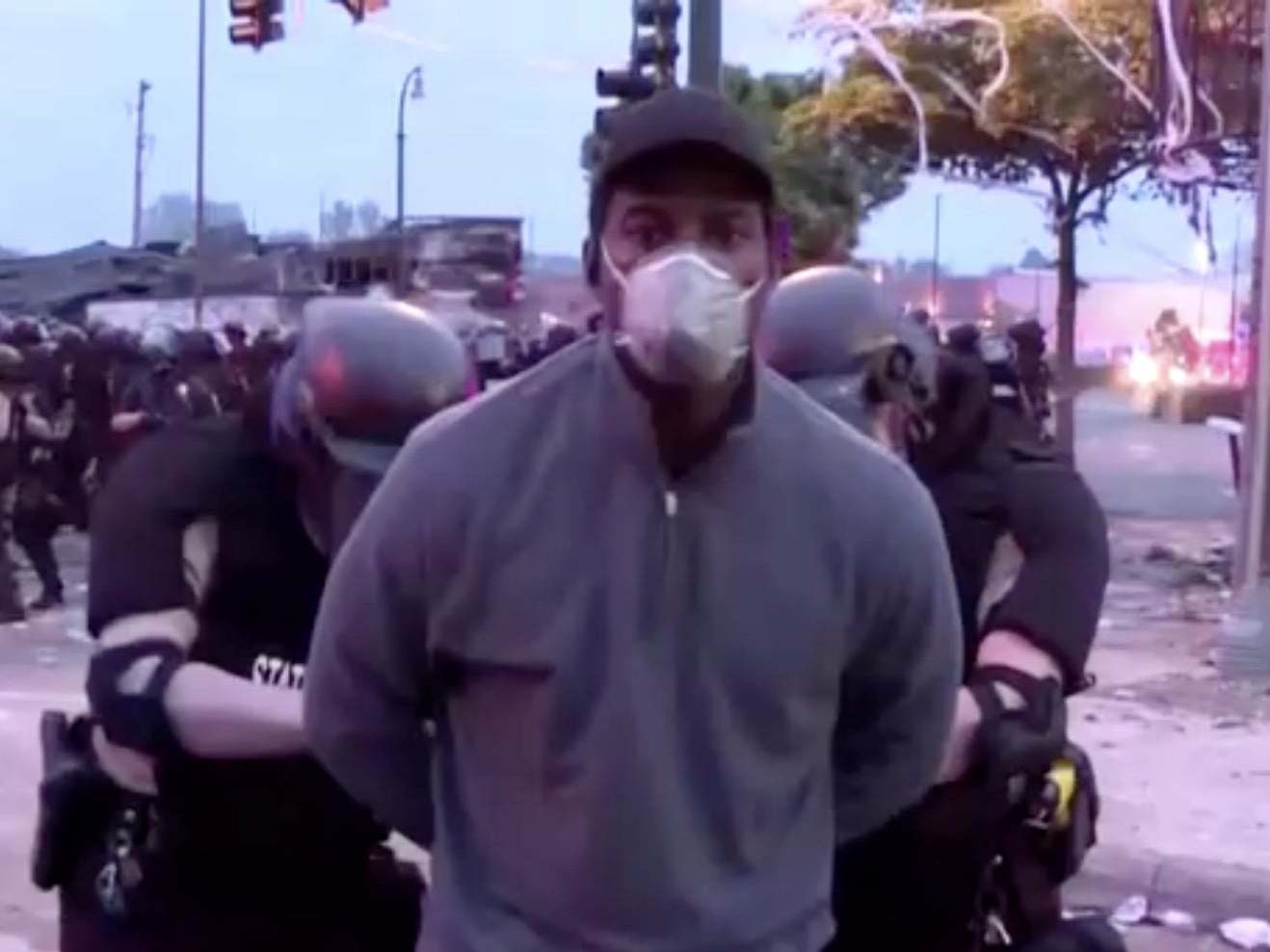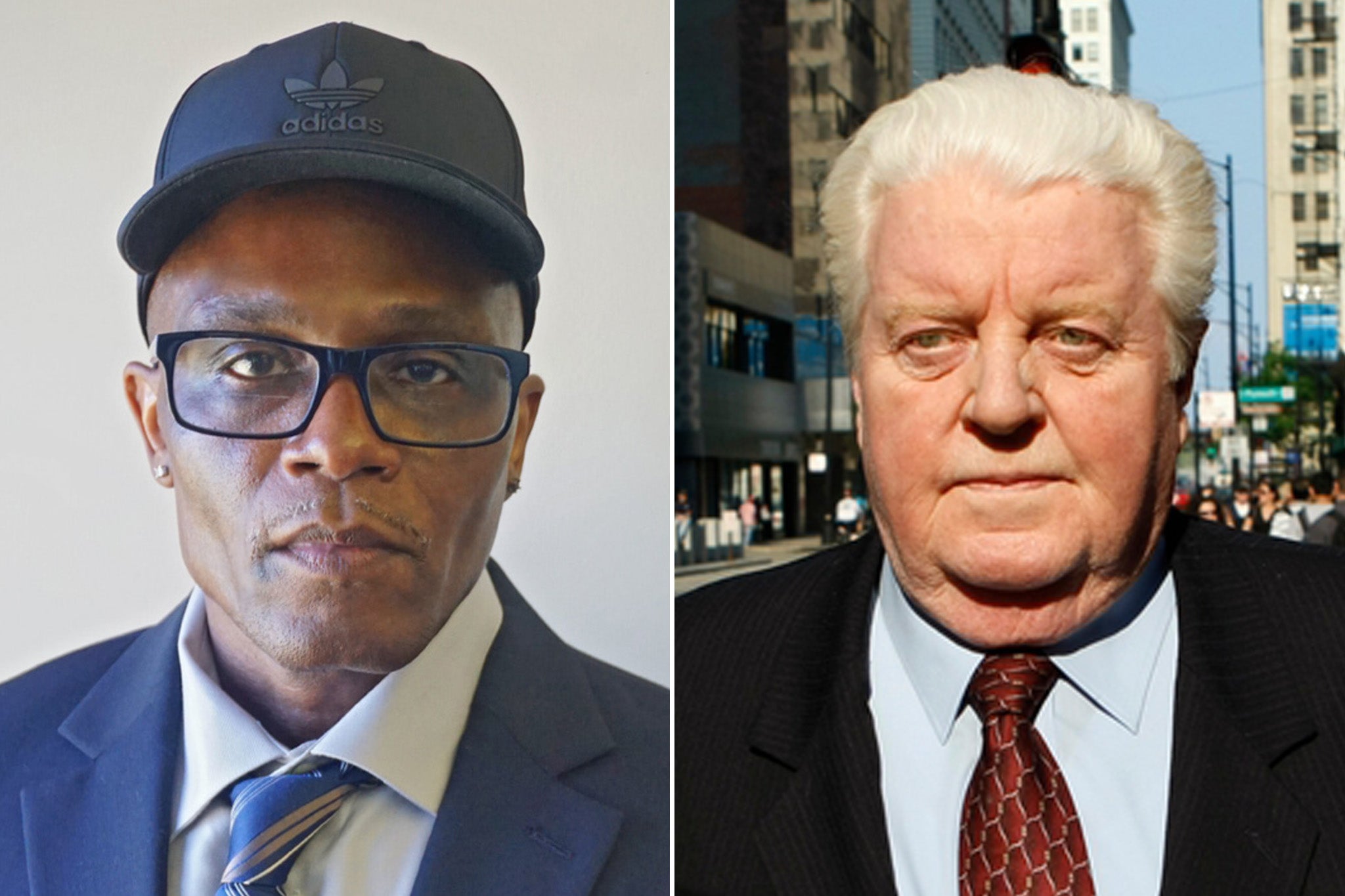
In a new three-part podcast series that debuts Wednesday, CNN anchor and correspondent Omar Jimenez digs into “one of the darkest chapters in American policing history,” and explains how a two-decade campaign of violence by Chicago law enforcement has had lasting impacts on the city’s Black community.
Tortured Justice with Omar Jimenez delves into the methods used by Jon Burge, a former Chicago police commander, and a group of detectives that called themselves the “Midnight Crew.” Beginning in 1970 and continuing into the early ‘90s, Burge and his men tortured at least 130 Black men and women, abusing many of them to coerce confessions.
In a conversation with The Independent, Jimenez suggested that lessons learned in the wake of the brutal strategy were relevant in the current national landscape, with the Trump administration deploying the National Guard onto city streets to ostensibly fight crime.
“It's easy to fall into the trap of the ends justifying the means,” the award-winning journalist said. “And that's not to say there's a one-to-one parallel right now, but I think what it does show is that if there is fear in a community or from an administration or whatever it might be, that it opens the door to a slippery slope.”
Jimenez – who first learned about the Burge case as a student with the Chicago Innocence Project more than a decade ago – spoke to activists, a former police superintendent, attorneys, reporters and survivors to explore how the police commander got away with his campaign of terror for so long. He also found that the Midnight Crew’s actions continue to affect victims decades later.
Jimenez dives into the case of James Gibson, an African American man who was convicted and sentenced to life in prison for a double murder in 1989. After spending 29 years incarcerated, Gibson was freed in 2019 when prosecutors dropped all charges based on new evidence showing his confession was coerced through torture. Over the years, Burge and his crew routinely used suffocation, electric cattle prods, and even mock executions to force suspects to falsely confess to crimes such as murder and rape.
After Gibson was freed, he filed a federal civil rights lawsuit against the city of Chicago in May 2019. He would eventually receive a certificate of innocence, and in June, the city settled his lawsuit for $14.75 million.
“We take people back into what is one of the darkest chapters in American policing history, set in Chicago, and we kind of bring people on that journey,” Jimenez told The Independent. “But we also show that even though this happened decades ago, there are still people today trying to unwind themselves from the mess that this created.”
Jimenez won an Emmy in 2021 for his reporting on the murder of George Floyd by a Minneapolis police officer. While on the ground covering related protests, Jimenez and his crew were arrested live on-air, prompting outrage over law enforcement’s perceived interference with freedom of the press.
The CNN correspondent began working on his new podcast after receiving a tip from a Chicago attorney representing someone who was trying to get civil justice from the city.
“And it was a Jon Burge-related story,” he said. “We were here in 2025, talking about a guy still trying to get justice for something that I came across a decade ago. But it had really been – we're talking like the ‘80s and early ‘90s here. And so that's what sort of drove me to pitch it to CNN.”

Acknowledging some similarities between the popular Serial podcast and his series, Jimenez said that he felt it was his own personal version of the true crime genre. “If you are a true crime lover, you're going to find something in this podcast,” he stated. “What I tried to do was sort of combine that genre with what my everyday bread and butter is, which is news.”
The correspondent also explained what seemed to drive Burge, who was fired from the Chicago police department in 1993 and would eventually be convicted of perjury and obstruction of justice nearly 20 years later, to be the ringleader of the long-running torture campaign.
“Chicago was a much, much more violent place than it is now. I mean, obviously, Chicago has its own current issues,” Jimenez said. “But for context, they were seeing twice the amount of homicides per year than they're seeing now, and so there was this pressure to close cases and to try to restore order in the form of public safety.”
Burge’s brutal response to the 1982 killings of two police officers set off a chain of events that eventually helped expose how the commander and his detectives were “systematically torturing” mostly Black suspects for years to coerce false confessions, according to Jimenez.
“And so that sort of began this saga that really the pieces of it didn't come out in full form until the early ‘90s, when he faced allegations of abuse and he was fired,” the correspondent added.

Jimenez acknowledged the far-reaching repercussions that Burge’s actions had on criminal justice reform, including former Illinois Gov. George Ryan first placing a moratorium on executions in 2000 after 13 death row inmates who had been wrongly convicted were exonerated.
Based on the number of alleged brutality cases, Ryan eventually lost faith in the state’s death penalty and commuted the sentences of all remaining death row inmates in 2003.
“We also highlight the dichotomy of justice in this, because on one hand, these were people who were put on death row and accused of doing some of the worst things a person can do to another person,” Jimenez said.
“And yet, if what they were saying was true, that they didn't do this, it now is going to show the state potentially doing the worst thing the state could do to another person, which is kill someone for something they didn't do.”
With President Donald Trump taking a tough-on-crime stance – which has seen him threaten to send the National Guard to Chicago and federalize law enforcement in Democratic-run cities – Jimenez pondered whether brutal policing strategies may once again be on the rise.
“I'll start by saying, I hope not. But I think that part of the goal of this series is to sort of show people, and it's why we've included the context of what Chicago was like leading into the Jon Burge era. Very high crime. There was a lot of pressure to do something,” he said.
Jimenez added that “one of the lessons that I hope people leave this series with” is that Burge’s actions are not ancient history, and that some of the principles could “apply to your present day life.”
The CNN anchor also pointed out that the Chicago police department didn’t operate in a vacuum during Burge’s time on the force.

“I want people to think about is that, yes, the police department and members of the police department perpetrated this,” he said. “But for this to happen at the scale that it did for as long as it did, there were breakdowns at every single step of the way. There were people who looked the other way. It essentially was this open secret.”
After he received his settlement from the city earlier this year, Jimenez asked Gibson how he felt, prompting the exoneree to say he was conflicted because while he was getting congratulated, the millions of dollars weren’t a win for him.
“He couldn't be satisfied with this, because he had been fighting for so long for his case — decades and decades — that he said, ‘I'm still swinging. I don't know how to stop.’ And so that also ties into the title of this podcast. It's tortured justice,” Jimenez said.
“The main aspect of this, the literal meaning, is you have justice achieved through means of torture. But then on the back end, when the so-called justice arrives again, you get your civil settlement. You get your certificate of innocence. You're exonerated. It's this tortured form of existence that you're now left with for the rest of your life, because you're never going to get back this time.”







